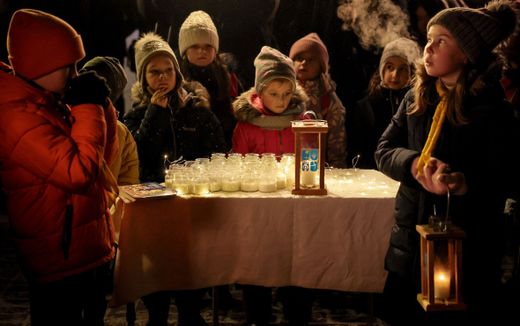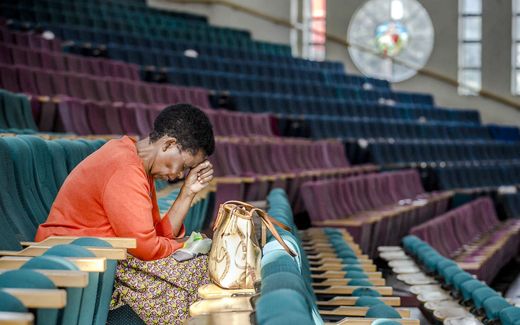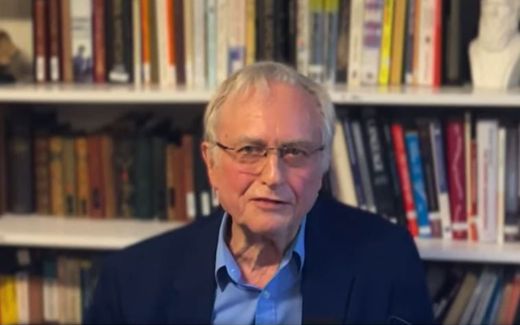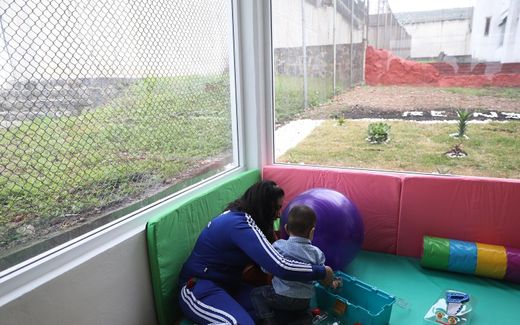New preaching ban makes schools in Norway anxious to break the law

The children's choir from Oslo International School singing in the forests. Photo EPA, Christoffer Andersen
Northern Europe
Is it good for a school to take their pupils to church in the Christmas season? In Norway, this has been done for ages. But after a new school law was implemented, there is fear whether this is illegal. “The real question is, what is preaching?”
Stay up to date with Christian news in Europe? Sign up for CNE's newsletter.
Public schools in Trondheim were surprised with a letter last week. The municipal head of education, Svein Johny Forren, wrote that going to a church service with pupils was no longer allowed, Adresseavisen writes.
The background of the e-mail is a change in the Education Act of Norway last August. The Education Law now explicitly forbids preaching in schools.
The ban applies to all subjects in primary and secondary education. Earlier, a preaching ban only applied to the subject of religion (KRLE), which is supposed to teach pupils about all the major world religions.
Church
However, the new law leaves no room for exceptions, sources in Norway argue. Thus, they believe that going to church for educational purposes would not be allowed anymore either. Christian Lomsdalen, chairman of the Human-Ethical Association (HEF), shares this opinion with education leader Forren. Lomsdalen writes in an opinion article that organising a school service is a violation of the legal ban. “There are no provisions in §14-5 that allow for exceptions to this prohibition, not even for school services.”

And the Church of Norway itself said that a school service is the same as preaching, Dagen writes.
In response, several schools decided last week to cancel the church services they had already planned for Christmas, Vart Land reports. Inger Sagen Hasselø, principal of the Huseby primary school in Trondheim, explained that the reason for the cancellation of the school is the letter from the head of the school, also mentioned above.
Celebration
However, the Norwegian Minister of Education, Kari Nessa Nordtun, quickly clarified to Vart Land that school services are not part of the ban and therefore still allowed. “Schools have the opportunity to offer school services to pupils who wish to participate”, she emphasised.
“Christmas celebration and the traditions associated with it are important to many people, including many who do not consider themselves Christians. It’s nice that the students both learn about Christmas and traditions and that everyone gets to experience community and enjoyment around activities you do together.” According to the Minister, it is up to the individual school to decide how Christmas should be celebrated.
In an earlier written statement, the Minister wrote that learning about Christmas “both as a Christian holiday and as a common cultural heritage” is important.
“I am happy that many pupils are offered to join the church before Christmas and that new generations get to take part in traditions such as the Lucia celebration, Christmas decorations, and carols. It is a strong wish from many students and parents. It is also important for students, regardless of background and religion, to learn about and experience, understand and learn traditions that are important in Norway.”
At the same time, schools are obliged to organise an alternative activity for students who do not want to join a church service. This activity must also be aimed at teaching pupils about culture and traditions. According to the Minister, the possibility of opting out is necessary to guarantee the pupils’ freedom of religion.
After this response, Kjell Ingolf Ropstad from the Christian Democratic Party, called the campaign of the Human Ethical Association against school services "nothing but disinformation." He pleads for a strenghtening of the church's position in "our common cultural history."
Decision
A day after the first letter from the Trondheim municipality, a second letter was sent out by the special city councillor for education. In it, she rectified the first letter saying that Christmas services are allowed if certain conditions are met. One of these requirements is that a Christmas service should not be used to mark the end of Christmas.
However, principal Inger Sagen Hasselø does not reconsider her decision. “That message reached us a little late. The municipality must give us a clearer message if we are to change the practice again”, she clarified.
Misunderstanding
The problem with this new law is that no one really knows what preaching is, says Audun Raen, General Secretary of the Kristne Friskolers Forbund (KFF), the umbrella organisation for private schools in Norway. “Every school contains preaching”, he states in an interview with CNE.news.

If you attended a science class in a public school, you would hear preaching too, Raen asserts. “You will learn how the world developed itself without God. That is also a type of preaching, even though no one calls it that. If we teach about the origins of the earth and include God in our lesson, then all of a sudden, it is preaching. I think that the government misunderstands what it exactly means by preaching. You will always have it in some form in education.”
Despite this unclarity, Raen does not see schools ending up in court soon for organising a school service. He thinks that the words of the Minister offer schools a legal protection, as “it is the interpretation of the law.” In addition, he notes that teachers in Norway are already very careful to leave out faith in the classroom. “Even Christian teachers in public schools keep their mouth closed as they are afraid of saying anything wrong.”
Subject
Christian schools do not have to worry about the changes in the Education Law, Raen adds. They do not have to comply with this act, as they fall under the Private Schools Law. And right now, there is no “preaching ban” in that act.
That could always change, but Raen does not see any signs of that happening soon. “The idea of private schools is that they are quite different from the public schools. Therefore, Christian schools must be Christian to be allowed to exist. Therefore, our schools have an obligation to teach Christianity as a subject.”
Christian education in Norway
In Norway, there are about 150 Christian schools. Most of them have a membership with the Kristne Friskolers Forbund, the umbrella organisation for Christian schools. Christian education in Norway consists of primary schools, secondary schools, upper secondary and even vocational schools. In total, there are about 16,000 pupils and students that attend a Christian school.
Christian education is allowed in the country, and teachers can pray with their students. The schools fall under the Private School Act, which even explicitly specifies that a private school approved on religious grounds must teach that religion in school.
However, in 2023, the Private School Act was tightened with a new regulation that gives municipalities a great say in whether a private school is allowed to be started. If the local authorities say no, this opinion is followed most of the time.
According to Audun Raen, General Secretary of KFF, this makes it much harder to start a Christian school. “It really depends on how liberal the local authorities are.”
Related Articles










